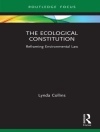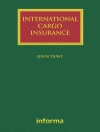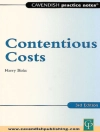This anthology discusses important issues surrounding environmental law and economics and provides an in-depth analysis of its use in legislation, regulation and legal adjudication from a neoclassical and behavioural law and economics perspective.
Environmental issues raise a vast range of legal questions: to what extent is it justifiable to rely on markets and continued technological innovation, especially as it relates to present exploitation of scarce resources? Or is it necessary for the state to intervene? Regulatory instruments are available to create and maintain a more sustainable society: command and control regulations, restraints, Pigovian taxes, emission certificates, nudging policies, etc. If regulation in a certain legal field is necessary, which policies and methods will most effectively spur sustainable consumption and production in order to protect the environment while mitigating any potential negative impact on economic development? Since the related problems are often caused by scarcity of resources, economic analysis of law can offer remarkable insights for their resolution.
Part I underlines the foundations of environmental law and economics. Part II analyses the effectiveness of economic instruments and regulations in environmental law. Part III is dedicated to the problems of climate change. Finally, Part IV focuses on tort and criminal law. The twenty-one chapters in this volume deliver insights into the multifaceted debate surrounding the use of economic instruments in environmental regulation in Europe.
Table des matières
Part I: Foundations.- 1. Sustainable Development and Regulation (Klaus Mathis).- 2. Temporal Spillovers (Bruce R. Huber).- 3. Environmental Law and Economics in Europe (Sebastian Heselhaus).- 4. Defending Environmental Economic Instruments against the Economists and their Opponents (Felix Ekardt and Jutta Wieding).- 5. Escaping the Epistemic Trap (Malte-Christian Gruber).-6. Pope Francis’s and Singaporeans’ Insights on Environment and Economics (Evelyne Fiechter-Widemann).- Part II: Sustainable Regulation.- 7. Behavioural Law & Economics and Sustainable Regulation (Philipp Hacker and Georgios Dimitropoulos).- 8. How to not Introduce Market-based Instruments into Environmental Regulation (Florian Stangl).- 9. Purchasing Energy-Efficient Appliances – To Incentivise or to Regulate? (Renate Schubert).- 10. Incentives Matter for Depolluting Rivers: The Case of the Ganga (Régis Lanneau).- 11. Overcoming Nanomaterial Uncertainties: A Responsive Governance Framework (Julian Schenten, Martin Führ and Kilian Bizer).- 12. The Choice of Regulatory Instruments for a Circular Economy (Eléonore Maitre-Ekern).- 13. Governing Environmental Issues through Indicators (Myriam Senn).- Part III: Climate Change.- 14. Emission Trading Systems: A Coasean Answer to Climate Change?.- (Rolf H. Weber).- 15. Caught Between WTO Rules and Climate Change (Elena Cima).- 16. Behavioural and Evolutionary Approach to the Law and Economics of Cap-and-trade (Rute Saraiva).- 17. Climate Change, Environmental Damage and Migration: A Law and Economics Perspective (Philip C. Hanke).- Part IV: Tort and Criminal Law.- 18. Lender Liability for Environmental Damage – Some Preliminary Thoughts on Efficiency and Justification (Piotr Tereszkiewicz).- 19. Between Love Canal and Rada di Augusta: The Optimal Liability for Environmental Damage in American and European Law from the Perspective of Behavioural Law and Economics (Mariusz J. Golecki and Jaroslaw Boldowski).- 20. An Economic Analysis of Liability and Compensation for Harm from Large-scale Solar Climate Engineering Field Research (Jesse L. Reynolds).- 21. Environmental Criminal Law: A Vital Part of the Regulatory Framework (Konstantina Papathanasiou).
A propos de l’auteur
Klaus Mathis is full professor for Public Law, Law of the Sustainable Economy and Philosophy of Law at the University of Lucerne. He is the co-founder of the Center for Law and Sustainability (CLS) and vice-president of the research commission of the University of Lucerne. Furthermore he is member of the evaluation commission “Ambizione” of the Swiss National Science Foundation (SNSF).
Bruce Huber teaches and conducts research in the areas of environmental law, natural resources law, property, and energy law. His particular areas of expertise include energy regulation, public land and resource management, and the interaction between law and politics. His scholarship in these fields has been published in such journals as the California Law Review, the Harvard Environmental Law Review, and The Georgetown Law Journal.












